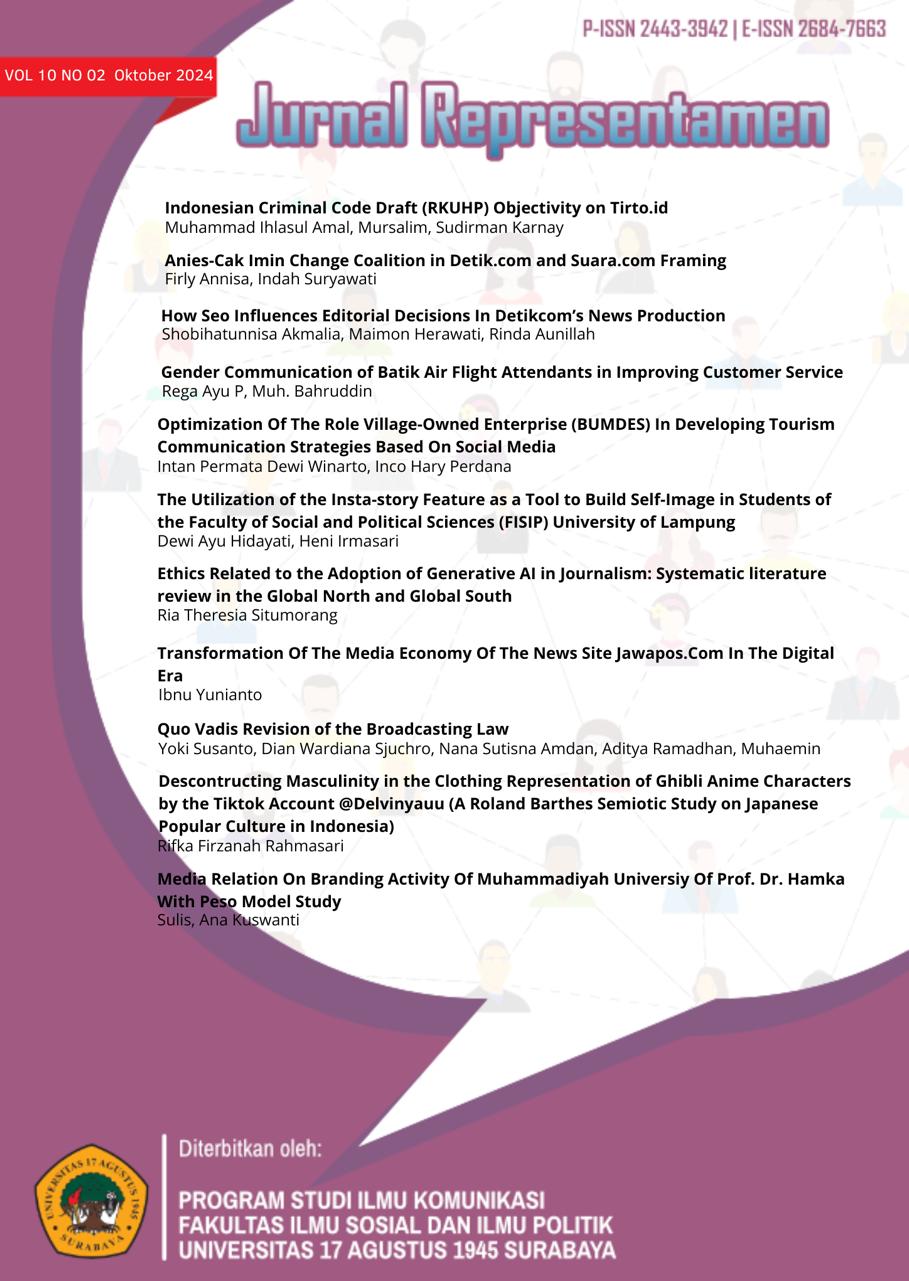Quo Vadis Revision of the Broadcasting Law
DOI:
https://doi.org/10.30996/representamen.v10i02.12056Abstract
Law of the Republic of Indonesia Number 32 Year 2002 on Broadcasting was born after the political struggle in Indonesia. It gave birth to the Indonesian Broadcasting Commission (KPI) to equalize the ownership of radio and television, thus creating a diversity of content. But now KPI's authority is weaker after the House of Representatives passed the UU Cipta Kerja. KPI's role is only like an NGO. Now the Broadcasting Law will be revised by the House of Representatives. The Program is in the form of broadcast content, who supervises it, what is the role of KPI after the Undang-undang Cipta Kerja. Instead of being an independent institution, KPI now seems to be a broadcasting Non-Governmental Organization (NGO). This research uses a qualitative method. The research was conducted by interviewing KPI commissioners in various regions in Indonesia. The authority of the Indonesian Broadcasting Commission (KPI) as an independent body must remain firm and robust, standing as the leading regulator for broadcasting institutions, both radio and television, as well as for digital media content. For social justice in Indonesia, media ownership diversity must be regulated in the revised Broadcasting Law. Ensuring media ownership diversity across various regions and sectors is essential to prevent media ownership monopolies, which could result in only a few entities controlling television and radio broadcasting.
Downloads
Downloads
Published
Issue
Section
License
Authors whose manuscript is published will approve the following provisions:
The right to publication of all journal material published on the jurnal representamen website is held by the editorial board with the author's knowledge (moral rights remain the property of the author).
The formal legal provisions for access to digital articles of this electronic journal are subject to the terms of the Creative Commons Attribution-ShareAlike (CC BY-SA) license, which means Jurnal Representamen reserves the right to store, modify the format, administer in database, maintain and publish articles without requesting permission from the Author as long as it keeps the Author's name as the owner of Copyright.
Printed and electronic published manuscripts are open access for educational, research and library purposes. In addition to these objectives, the editorial board shall not be liable for violations of copyright law.











